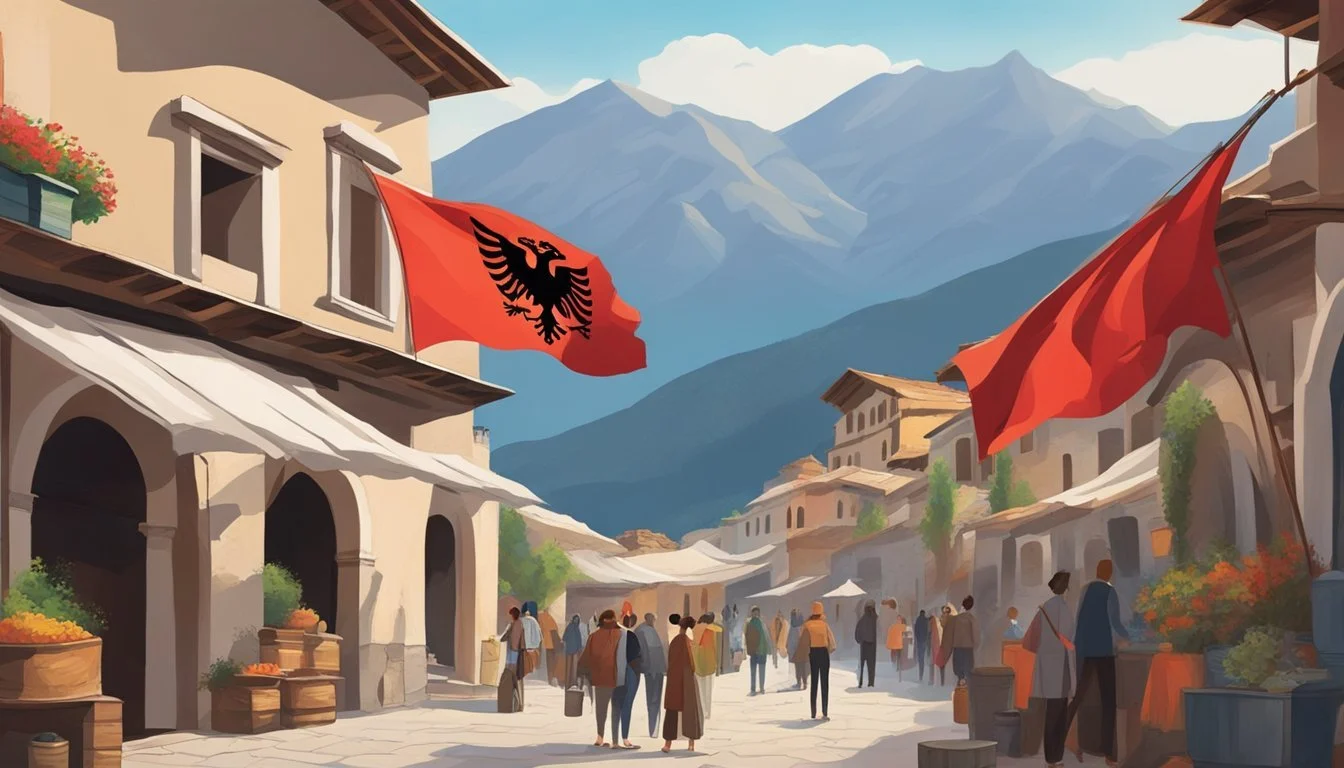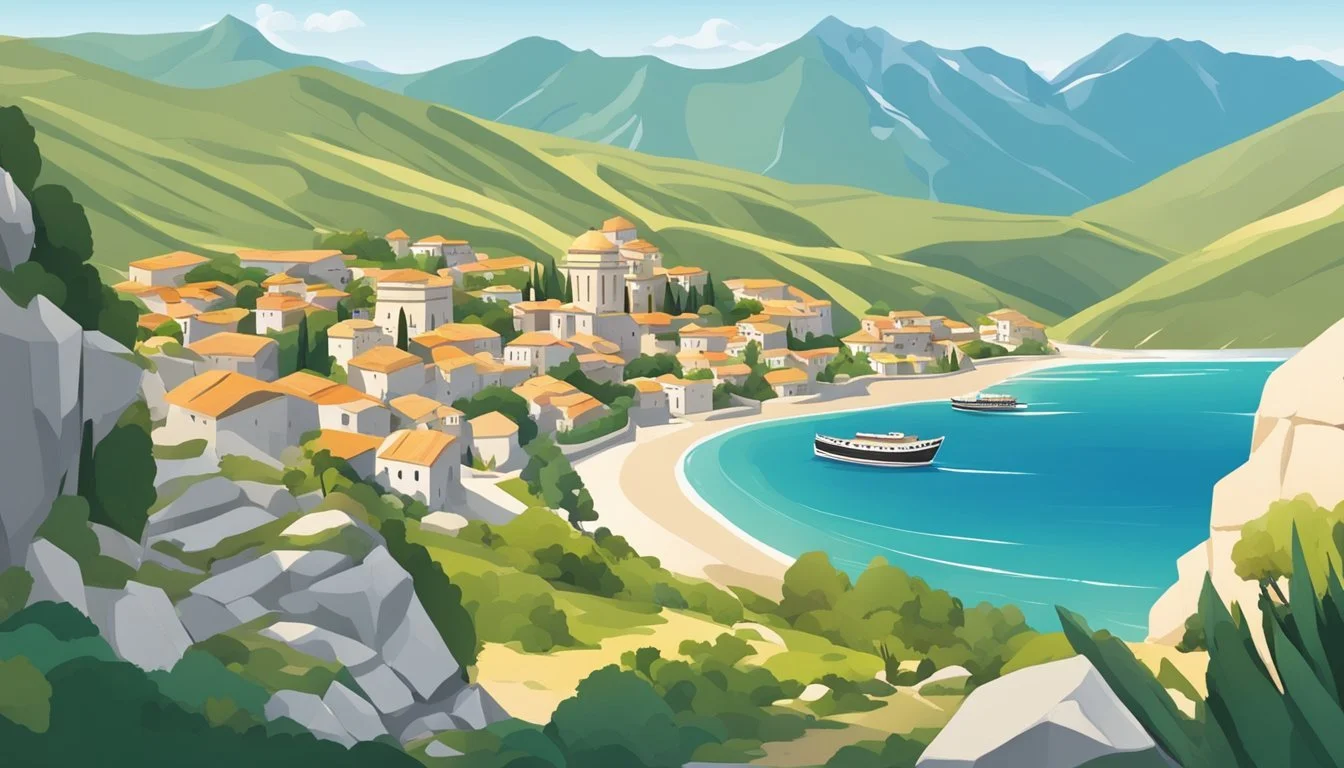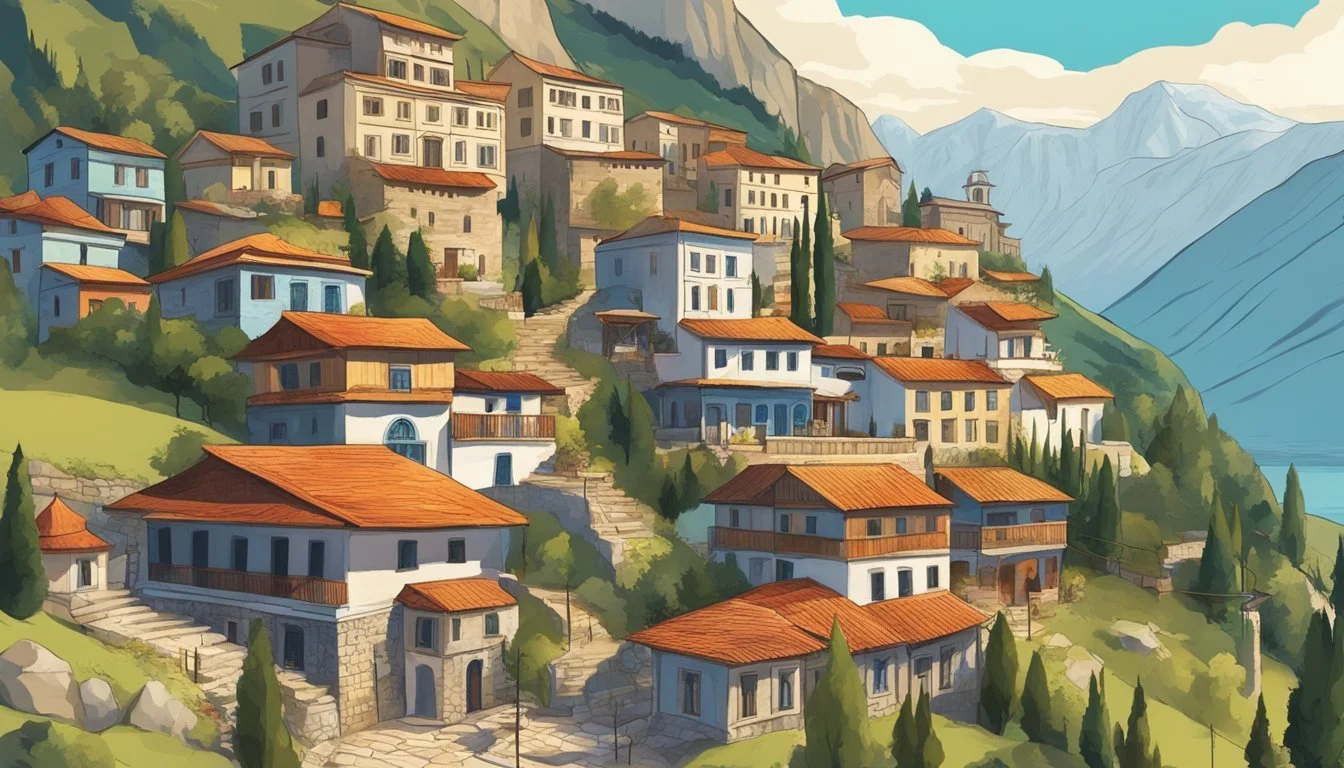7 Must-Watch Documentaries on Albania
Unveiling the Balkan Gem's History and Culture
Albania, a country with a complex history and rich cultural heritage, has been the subject of numerous documentaries in recent years. These films offer viewers unique insights into Albania's past, present, and future, exploring topics ranging from its communist era to its natural beauty and evolving society.
Documentaries about Albania provide an invaluable window into a nation that was once one of Europe's most isolated and mysterious countries. From historical examinations of Albania's former totalitarian regime to explorations of its stunning landscapes and vibrant traditions, these films offer diverse perspectives on this fascinating Balkan nation. Viewers can expect to gain a deeper understanding of Albania's journey from dictatorship to democracy, its cultural nuances, and the challenges and opportunities it faces in the modern world.
1) Bunk'Art
Bunk'Art stands as a unique museum in Tirana, Albania, offering visitors a glimpse into the country's turbulent communist past. Located in a former nuclear bunker, this cultural space combines history and contemporary art to create an immersive experience.
The museum consists of two main sites: Bunk'Art 1 and Bunk'Art 2. Bunk'Art 1, situated on the outskirts of Tirana, is built five floors underground and covers an area of 3000 square meters. It features 106 rooms filled with historical objects, photographs, and multimedia displays.
Bunk'Art 2, located in the city center, complements the first site by focusing on the Ministry of Internal Affairs and the Sigurimi, Albania's secret police during the communist era. Both museums aim to educate visitors about the 51-year period of communist rule in Albania.
The exhibits at Bunk'Art showcase various aspects of life under the regime of Enver Hoxha. Through interactive installations and audio-visual presentations, visitors can gain insight into the harsh realities of that time.
Bunk'Art serves as a powerful reminder of Albania's past while also providing a platform for contemporary artists to engage with historical themes. Its unique setting and innovative approach make it a must-visit destination for those interested in Albanian history and culture.
2) The Great Communist Bank Heist
"The Great Communist Bank Heist" is a riveting documentary that explores one of the most audacious crimes in Albania's history. The film delves into the 1997 robbery of the Bank of Albania, where thieves made off with millions of dollars.
Set against the backdrop of Albania's tumultuous transition from communism, the documentary paints a vivid picture of the country's economic and social upheaval. It examines how the collapse of pyramid schemes led to widespread civil unrest, creating the perfect conditions for such a daring heist.
The film skillfully weaves together interviews with key players, including investigators, witnesses, and even some of the alleged perpetrators. Through these accounts, viewers gain insight into the planning and execution of the robbery, as well as its aftermath.
"The Great Communist Bank Heist" also sheds light on the broader implications of the crime. It explores how the theft impacted Albania's already fragile economy and eroded public trust in financial institutions.
This documentary serves as a captivating case study of crime in post-communist Albania. It offers viewers a unique glimpse into a pivotal moment in the country's recent history, blending elements of true crime with political and economic analysis.
3) Born in Albania
"Born in Albania" is a compelling documentary that offers an intimate look at life in the Balkan nation. The film follows several individuals from diverse backgrounds as they navigate modern Albanian society.
Director Eliza Dushku, known for her acting career, returns to her ancestral homeland to explore her roots. She interviews locals and delves into Albania's complex history and culture.
The documentary showcases Albania's stunning landscapes, from pristine beaches to rugged mountains. It also highlights the country's rapid development since the fall of communism in the early 1990s.
Viewers gain insight into Albanian traditions, family life, and the challenges faced by young people in a changing society. The film touches on issues like emigration and the struggle to preserve cultural identity.
"Born in Albania" presents a nuanced portrait of a nation often overlooked in Western media. It celebrates the resilience and warmth of the Albanian people while acknowledging the country's ongoing transformation.
4) Free Thoughts about Albania
Albania's complex history and unique culture make it a fascinating subject for documentaries. The country's transition from communist isolation to a developing democracy offers rich material for filmmakers.
Documentaries exploring Albania often focus on its turbulent past. They examine the legacy of Enver Hoxha's regime and its impact on modern Albanian society.
Some films highlight Albania's natural beauty and diverse landscapes. From pristine beaches to rugged mountains, the country's scenery provides a stunning backdrop for visual storytelling.
Contemporary documentaries also address Albania's current challenges. Topics include economic development, political reform, and efforts to combat organized crime.
Albanian traditions and customs feature prominently in many films. These documentaries offer insights into the country's cultural heritage and how it shapes modern Albanian identity.
The Albanian diaspora is another common theme. Films explore the experiences of Albanians living abroad and their connections to their homeland.
Recent documentaries have begun to showcase Albania's potential as a tourist destination. They highlight the country's hospitality, historical sites, and emerging tourism industry.
5) Albanian Code
"The Albanian Code" is a compelling documentary that sheds light on a little-known chapter of World War II history. Directed by Israeli filmmaker Yael Katzir, the film explores Albania's role in saving thousands of Jewish refugees during the Holocaust.
The documentary features unique archival footage and personal accounts, including that of Ennie Altaratz-Francis, a survivor who escaped to Albania from Yugoslavia. Altaratz-Francis embarks on a journey to thank those who helped save her and others.
Albania, a predominantly Muslim country, demonstrated remarkable courage and humanity during this dark period. The film highlights the Albanian cultural code of "Besa," which emphasizes honor and hospitality, as a driving force behind the widespread efforts to protect Jews.
"The Albanian Code" not only recounts historical events but also explores the lasting impact of these acts of heroism. It showcases how Albania's actions during World War II continue to resonate in modern times.
Through interviews and historical context, the documentary provides a powerful testament to human kindness and solidarity in the face of extreme adversity. It serves as an important educational tool, bringing attention to Albania's significant contribution to saving Jewish lives during the Holocaust.
6) Anija – The Ship
"Anija" is a compelling documentary directed by Roland Sejko that explores a significant moment in Albanian history. The film focuses on the mass exodus of Albanians to Italy in early March 1991.
This event marked the beginning of what became known as the "Exodus of the Albanians." It was an unprecedented mass emigration in post-war Europe, with ships laden with men, women, and children arriving on the Adriatic coast of southern Italy.
Sejko's documentary utilizes a blend of archival footage and personal testimonies to bring this historical event to life. The film features accounts from 10 individuals who were part of this exodus, providing intimate insights into their experiences.
"Anija" sheds light on the motivations behind this mass migration, as Albanians sought better opportunities and escape from their country's challenging conditions. The documentary serves as a powerful reminder of the human desire for freedom and a better life.
The film has garnered attention both in Albania and internationally, offering viewers a poignant look at this crucial chapter in Albanian history. It stands as an important contribution to the documentation of Albania's transition from communist rule.
7) Kino Caravan
Kino Caravan is a compelling documentary that captures the essence of Albania's traveling cinema tradition. This film explores the cultural significance of mobile theaters that brought movies to remote villages across the country.
The documentary follows a group of dedicated film enthusiasts as they revive the Kino Caravan concept in modern-day Albania. They travel to isolated communities, setting up temporary screens and projectors to share the magic of cinema.
Viewers are treated to stunning scenes of Albania's diverse landscapes as the caravan journeys through mountains, valleys, and coastal regions. The film showcases the warm reception and excitement of villagers who rarely have access to big-screen entertainment.
Kino Caravan not only highlights the power of film to bring people together but also provides insight into rural Albanian life. It captures candid moments of community gatherings and the joy of shared experiences.
The documentary serves as a poignant reminder of cinema's ability to transcend barriers and connect people across different backgrounds. It offers a unique perspective on Albania's cultural heritage and the enduring appeal of storytelling through film.
Cultural and Historical Context
Albania's unique cultural tapestry and complex history shape its national identity. The country's rich heritage spans millennia, encompassing influences from ancient civilizations to more recent geopolitical developments.
Albania's Rich Heritage
Albanian culture traces its roots to the ancient Illyrians, believed to be the ancestors of modern Albanians. The country's strategic location led to interactions with Greeks, Romans, and Byzantines, each leaving their mark on Albanian traditions. Christianity arrived early, with Albania becoming one of Europe's first Christian nations.
Albanian language and customs persevered through centuries of foreign rule. Traditional music, dance, and folklore reflect this enduring spirit. The kanun, a set of customary laws, guided social norms in rural areas for generations. Today, UNESCO-recognized sites like Butrint and Gjirokastër showcase Albania's archaeological and architectural legacy.
Influence of the Ottoman Empire
Ottoman rule, lasting nearly five centuries, profoundly impacted Albanian society. Islam became widespread, creating a diverse religious landscape alongside Orthodox and Catholic communities. Ottoman architecture transformed cities, with mosques and bazaars becoming prominent features.
The Turkish influence extended to language, cuisine, and social customs. Many Albanians rose to high positions within the Ottoman administration. This period also saw the emergence of a distinct Albanian national identity, culminating in the independence movement of the late 19th and early 20th centuries.
Ottoman legacy remains visible in modern Albania through historical buildings, culinary traditions, and certain cultural practices. This blend of Eastern and Western influences contributes to Albania's unique cultural identity in the Balkan region.
Themes Explored in Albanian Documentaries
Albanian documentaries offer insights into the country's complex history and evolving culture. They shed light on significant societal shifts and the preservation of artistic heritage.
Social and Political Changes
Albanian documentaries delve into the nation's transition from communist dictatorship to democracy. Films examine the impact of Enver Hoxha's regime, which lasted nearly 50 years. They reveal the harsh realities of surveillance, imprisonment, and executions during this period.
Some documentaries focus on the opening of state police archives, providing a window into the operations of the feared Sigurimi. This process allows Albanians to confront their past and understand its lasting effects on society.
Recent films explore Albania's changing role in the world. Documentaries highlight the country's approach to refugees, showcasing how some Afghan refugees have been welcomed into luxury beachside hotels rather than traditional camps.
Art and Tradition
Albanian documentaries celebrate the country's rich cultural heritage. They showcase traditional arts, crafts, and customs that have endured through decades of isolation and change.
Films explore Albania's diverse landscapes, from ancient castles to pristine beaches. These visual narratives capture the country's natural beauty and architectural treasures.
Documentaries also examine how Albanian artists express their national identity through various mediums. They highlight the ways in which contemporary creators blend traditional motifs with modern techniques, reflecting Albania's evolving cultural landscape.







